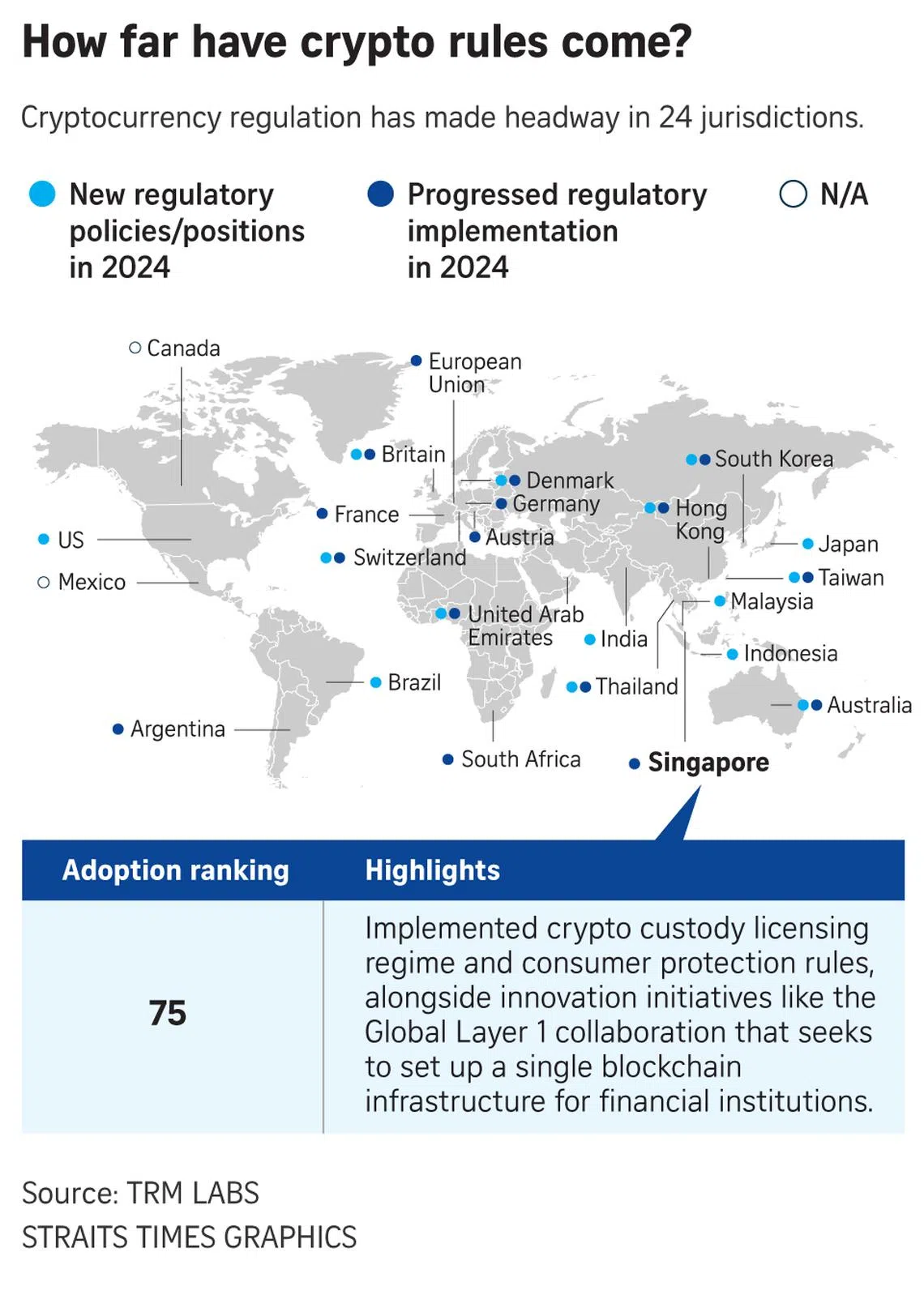Singapore’s crypto regulation more mature in 2024 but adoption lags behind
Sign up now: Get ST's newsletters delivered to your inbox

A report noted that Singapore and the other three places already have a more developed digital payment landscapes.
PHOTO: PIXABAY
SINGAPORE - Cryptocurrency hubs like Singapore, Hong Kong, the United Arab Emirates (UAE) and Switzerland may have more mature regulation, but domestic adoption is lower, a report has found.
An analysis by blockchain intelligence firm TRM Labs issued on Dec 12 noted that this could be due to the global nature of the digital asset ecosystems in these four jurisdictions.
The global crypto policy review and outlook said that Singapore and the other three places already have more developed digital payment landscapes.
In terms of crypto adoption, the report said Singapore ranks 75th, behind Hong Kong’s 42nd spot, the UAE’s 61st rank and Switzerland’s 60th position. India was top in crypto adoption, followed by Indonesia, out of more than 150 jurisdictions.
TRM Labs reviewed 2024 crypto policy developments in 24 jurisdictions including Singapore, the United States and Europe, representing about 70 per cent of global crypto exposure. It found that more than 60 per cent of jurisdictions introduced new policies or rules for digital assets, and about 70 per cent made progress in implementing regulations.
Just under half of the 24 places reviewed made moves to support digital asset innovation.
Specifically, Singapore rolled out a crypto custody licensing regime and consumer protection rules, alongside innovation initiatives like the Global Layer 1 collaboration, TRM Labs said.
The Global Layer 1 initiative explores a single new blockchain infrastructure for financial institutions to work together and prevent the fragmentation of global liquidity.
Since the rules for crypto custody services went live in April, TRM Labs said more than 30 crypto custodians already operating in Singapore have successfully filed for a licensing exemption while their applications are being reviewed.
Other measures, including the segregation and custody of customer assets, barriers to entry for retail investors such as knowledge tests, and the prohibition of the use of credit cards and any forms of leverage for crypto purchases,
“Meanwhile, the pace of crypto licensing has accelerated. As of end-November, the Monetary Authority of Singapore (MAS) has issued a record 13 new digital payment token (DPT) licences in 2024, raising the total number of DPT licensees from 16 to 29,” the report said.
It added that MAS has laid the groundwork for further regulation in 2025. It issued a consultation paper in October on the proposed regulatory framework for digital token service providers under the Financial Services and Markets Act (FSMA).
Existing regulation focuses on the provision of digital token payment services in Singapore.
The FSMA, which was passed in 2022, expands MAS’ oversight of digital token services to include the provision of services by Singapore-based individuals, partnerships, and companies outside of Singapore.
“Looking ahead to 2025, we can expect more clarity as regulatory frameworks under the FSMA get finalised and more businesses complete the crypto licensing application process,” the report noted.




